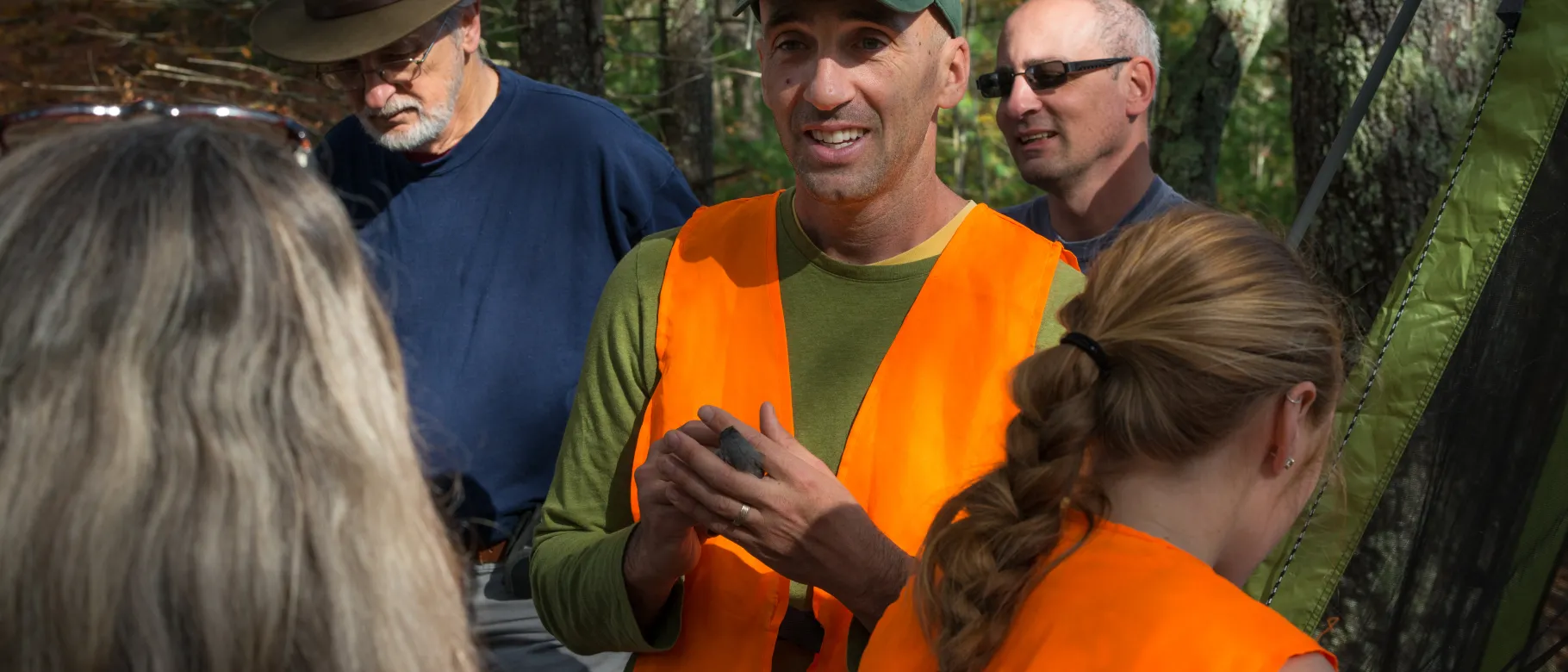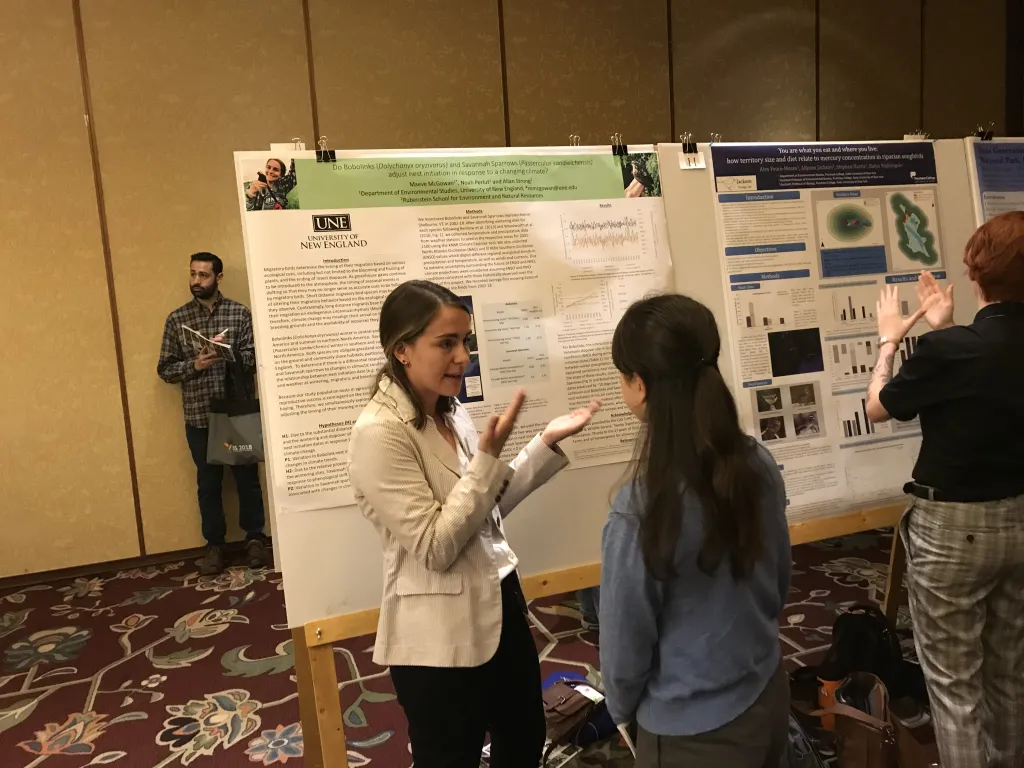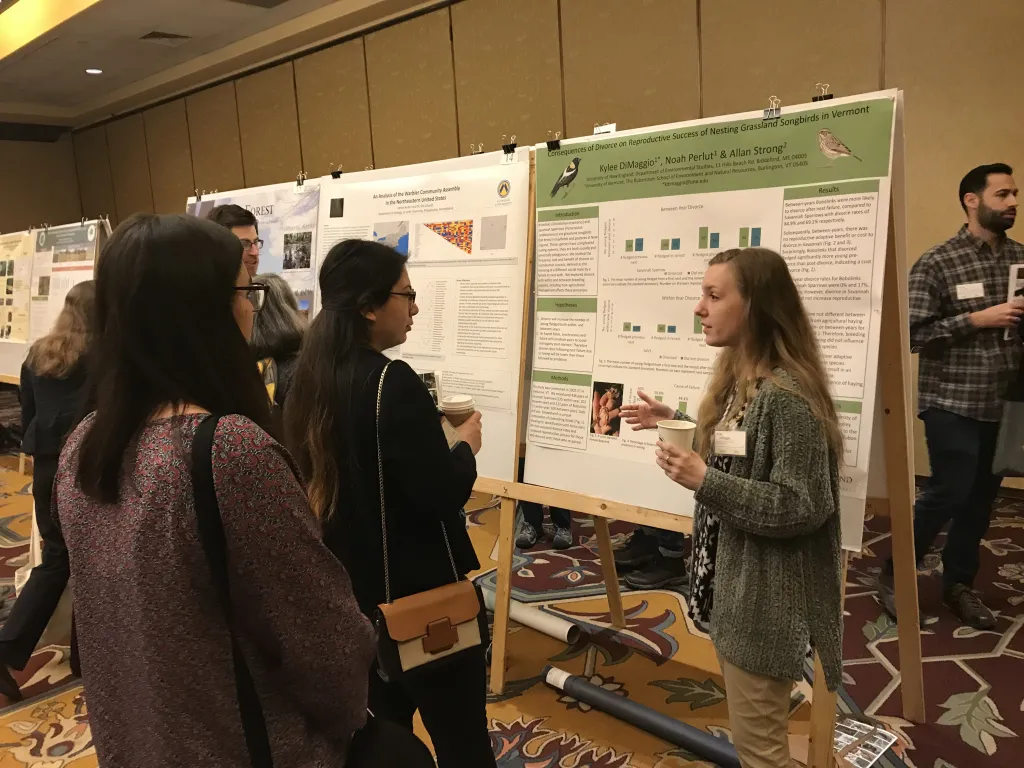Noah Perlut and students present research at the Northeast Natural History Conference

Noah Perlut, Ph.D., associate professor and department chair in the Department of Environmental Studies, and students Maeve McGowan (Environmental Science, ’19) and Kylee DiMaggio (Environmental Science/Marine Science, ’19) recently presented their research at the Northeast Natural History Conference in Springfield, Massachusetts.
The conference is the largest regional forum for researchers, natural resource managers, students and naturalists to present current information on applied field biology and natural history for the Northeastern United States and Canada.
Perlut presented two research papers at the conference.
“Dispersal Distance by Sub-adult Herring Gulls Increases with Latitude Across the Gulf of Maine” describes the movements of juvenile herring gulls along the eastern seaboard.
The gulls were banded in three locations: Portland, Appledore Island and Great Duck Island. Perlut’s research found that, while dispersal distance varied, the three populations generally overlapped along the East Coast of the United States. Sixty-one percent of all observations were concentrated between the Delaware Bay and the New Hampshire coast.
The research was conducted in collaboration with Margaret Friar, Ph.D., associate lecturer in the Department of Biology, College of the Atlantic, Cornell Lab of Ornithology, Northern Essex Community College, University of Pennsylvania and University of Massachusetts Lowell.
“Community Farming for Grassland Birds: A Local Conservation Strategy” focuses on a unique model used to share accounts of bobolinks and savannah sparrow lineages, spanning up to six generations, with local landowners and managers. The lineage data provide engaging stories to begin discussions about farming practices that balance production and grassland bird needs.
McGowan presented her research, “Nest initiation dates in a changing climate: Savannah Sparrows and Bobolinks respond to climactic variables from their wintering grounds.”
Her work used data collected from 2002 to 2018 to explain how phenological shifts caused by climate change on the wintering grounds affected variation in nest initiation dates of two migratory grassland songbird species breeding in agricultural fields of Vermont.
DiMaggio presented her research, “Mixed Consequences of Divorce on Reproductive Success of Songbirds Nesting in Agricultural Hayfields.”
The work study project quantified within- and between-year divorce rates of grassland songbirds. She determined if divorce rates differed after haying or predation-caused nest failure and, if so, whether divorce influenced reproductive success.
DiMaggio was awarded a certificate and $200 for winning second place for her poster presentation.

